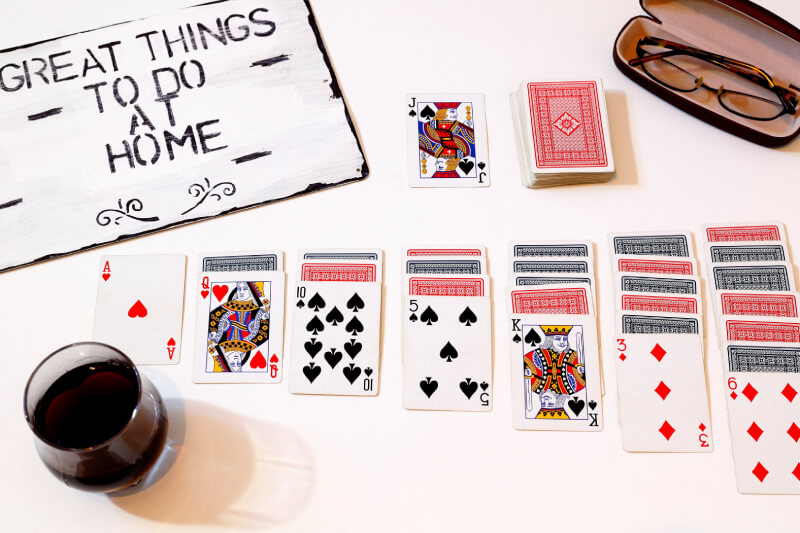The Origin/History of Solitaire Games
The first form of Solitaire was Card Solitaire, which originated around the late 1700s or early 18 century in Scandinavia or Europe’s northern Baltic region. Some records show that it may have started as a means of fortune-telling in this region.
In one book published in 1788 in present-day Germany, Das Neue Königliche L’Hombre-Spiel uses the phrase Patiencespiel to describe a game that resembles what we now call Patience. That is possibly one of the first or earliest forms of Solitaire.
Is Patience the same as Solitaire?
Yes, Patience is the same as Solitaire. Although the two may have started as different games in different regions, they now mean the same thing. They refer to a family of single player games. They can also be known as cabale in most Scandinavian countries.
Solitaire is called either Patience or a variant of the terms in various European countries, including:
- Germany
- Poland
- England
- France
Today, patience games and solitaire games refer to one and the same thing. They are card games that use one or more decks of 52 playing cards.
What is the purpose of Solitaire?

The purpose of Solitaire is to eventually build 4 piles of 13 cards, each of the same suit, in increasing numerical order starting with A through K. When playing solitaire, these piles are also known as foundation piles, and they include:
- Ace through King of Hearts
- Ace through King of Clubs
- Ace through King of Diamonds
- Ace through King of Spade
The number of foundation piles or columns you can create when you play solitaire can be 4, 8, and so on, depending on the rules of the solitaire variations and the number of decks of cards used in the game.
Generally, the main aim of the patience game is to make as many complete piles of cards in ascending order from an ace and ending with a king, usually in a similar suit.
The place where foundation piles are installed can be empty at the beginning of the game, while in some variants of Solitaire, this area has an ace of each suit. In this way, you can start building upon the sequence until you complete the foundation pile.
Which country invented Solitaire?
Solitaire is thought to have been invented in France. According to the origin of the game, a French aristocrat developed the earliest game of Solitaire when he was imprisoned in the Bastille in the early 1700s.
This was during the reign of King Louis XIV, who was known for imprisoning nobles who weren’t related to him in a fortress.
In a different version of the game’s origin, the variant that’s now known as Patience was invented in England in the early 1800s; about the same time Solitaire was invented in France.
Who invented Solitaire?
The card game of Solitaire is said to have been invented by a French aristocrat in the mid-1700s while under arrest in the Bastille following the orders of King Louis XIV. On the other hand, Patience is thought to have been invented by someone in northern Scandinavia or Germany.
Why is it called Solitaire?
It is called Solitaire because the game is usually played by one person. In fact, the term solitaire comes from the Latin word “solitaries,” which means “isolated,” “lonely,” or “alone.” Initially, the word solitaire was used in some parts of Europe to describe a widow but eventually meant any lonely, isolated, or solitary individual.
The term solitaire came to be associated with the card when the meaning of gemstone evolved.
